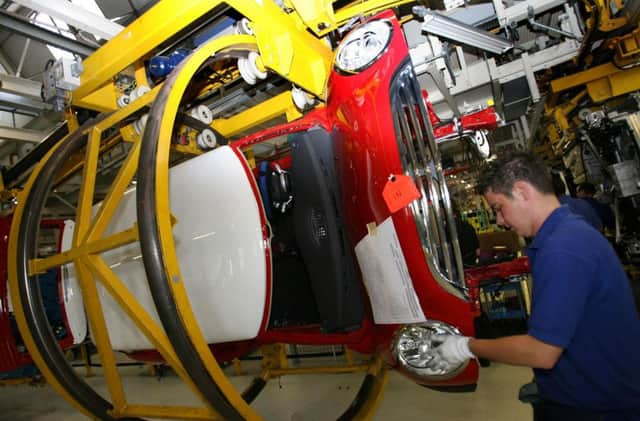'˜Near-stagnant' manufacturing hits lowest level in three years


The Markit/CIPS UK manufacturing purchasing managers index for April noted “near-stagnant trends in output and new orders” as it fell below the critical no-change mark of 50 for the first time since March 2013.
At 49.2, from a downwardly revised reading of 50.7 in March – which itself marked minimal growth – the survey identified “lacklustre trends in production and new orders, and declines in both employment and stocks of purchases”.
Any mark below 50 signifies contraction.
Advertisement
Hide AdAdvertisement
Hide AdRob Dobson, senior economist at compilers Markit, said the survey highlighted “a further deepening of the sector’s downturn at the start of the second quarter”.
He added: “On this evidence, manufacturing production is now falling at a quarterly pace of around 1 per cent, and will likely act as a drag on the economy again during the second quarter and putting greater pressure on the service sector to sustain GDP growth.”
Manufacturing has tumbled as a contributor to the UK’s economic performance over the past three decades and more, contributing 12 per cent to GDP now against 18 per cent in the mid-1990s and 30 per cent in the 1970s.
The latest data will disappoint Chancellor George Osborne, who has previously called for a “march of the makers” to help rebalance the economy so that it is not so dependent on the services sector and consumer spending.
“This is a worrying and disappointing survey,” Howard Archer, chief UK economist at IHS Global Insight, said.
“While the UK manufacturing sector has been struggling for some time, the April purchasing managers survey can only fuel concern that mounting uncertainties ahead of the June EU referendum are taking an increasing toll on the economy.”
The survey said the weakening manufacturing performance was mainly felt in the consumer and investment goods sectors, with both recording declines in production and new work received.
The report highlighted an “atmosphere of deep unease” in the factory supply chain, with new orders down for the fourth consecutive month and job losses rising. Recent official data showed Britain’s economic growth slowed to 0.4 per cent in Q1 from 0.6 per cent in the last three months of 2015.